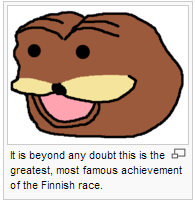Background: Informant is a Mexican-American college student. He believes strongly in his superstitions and magical energies. This story takes place in Las Grutas Tolantongo in Mexico. It’s a village right outside of an area with hot springs. This happened when the informants grandmother was 7, so in the 1960s.
Informant: There was this guy, his name was Taviano. They would come to give this woman bats to counteract a curse. So, Taviano would always come at night because that’s when they caught the bats, and my great-grandmother Josefina would always let Taviano sleep in their house, but Taviano would always sleep in the kitchen. And after a while they got suspicious like, “why would he always want to sleep in the kitchen?” And, turns out that when my grandmother went to a medium to kind of find out because– instead of going to the doctor’s– they don’t like the doctors, cause the doctors always try to– the scientific part. Like, over there it’s more spiritual, like they believe in more the spiritual world. So, they always go to mediums and those kind of things, yeah like mediums. So when the medium revealed to my grandmother why her daughter was sick, he mentioned that a guy who was your neighbor got her sick. So, Josefina guessed it was her neighbor because he was the only guy, but since he wasn’t there she didn’t know. So Taviano, even though they like don’t have pronouns, Taviano was still a guy, so suspicions went to Taviano. So then like, sleeping in the kitchen, what is he doing in the kitchen? So, um there was like uh, flame. There was one night where she had a flame in the kitchen, right. And, like, you know when dust kind of hits metal. Like dust particles are kind of hitting metal, the sound it makes, so she heard that in the middle of the night and she was like, “wait what’s going on”. And then she got up and she saw Taviano sitting in front of the oven with all this like, Carbon stuff and burning things and he had dead bones with him, and she was like “I got you!” And grabbed him by the ear asking “who told you to do this? Why are you doing this?” And they never found out why he was doing this but they found out that it was him who was doing the curse.
Reflection: This story was so interesting because the informant talked me through the entire process of the creation of the curse. I loved seeing how they lighted up as they told the story, and how emotional they were. The part where the informant talks about mistrust of doctors told me a lot about their culture and community. Their community relies on folk medicine and ritualistic practices done by mediums rather than Western medicine, and it was evident in their account. I learned so much more about cultural differences and how they affect people’s problem-solving throughout the world.



